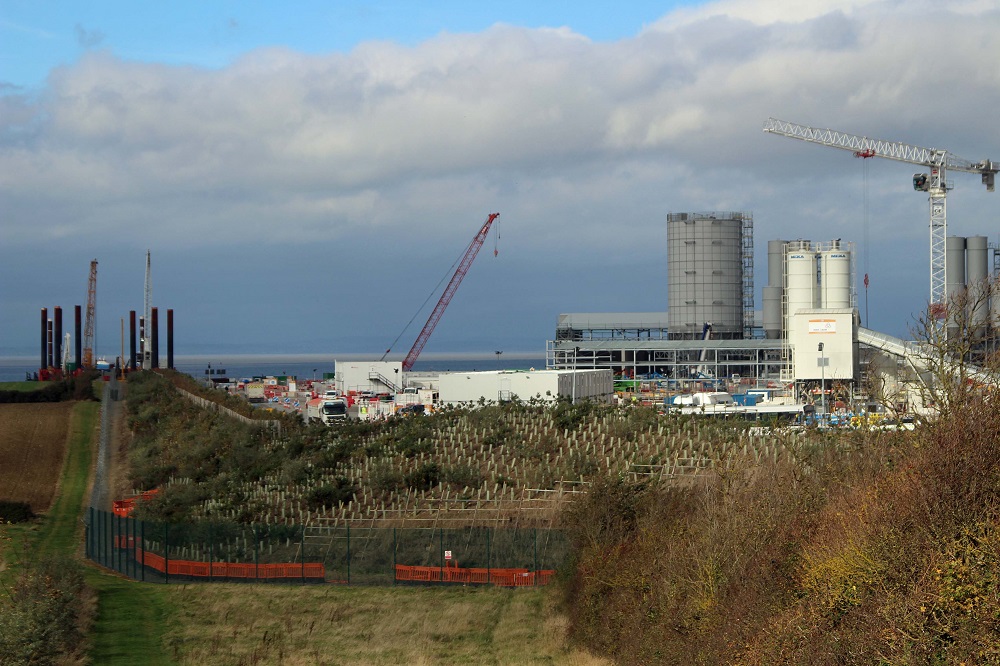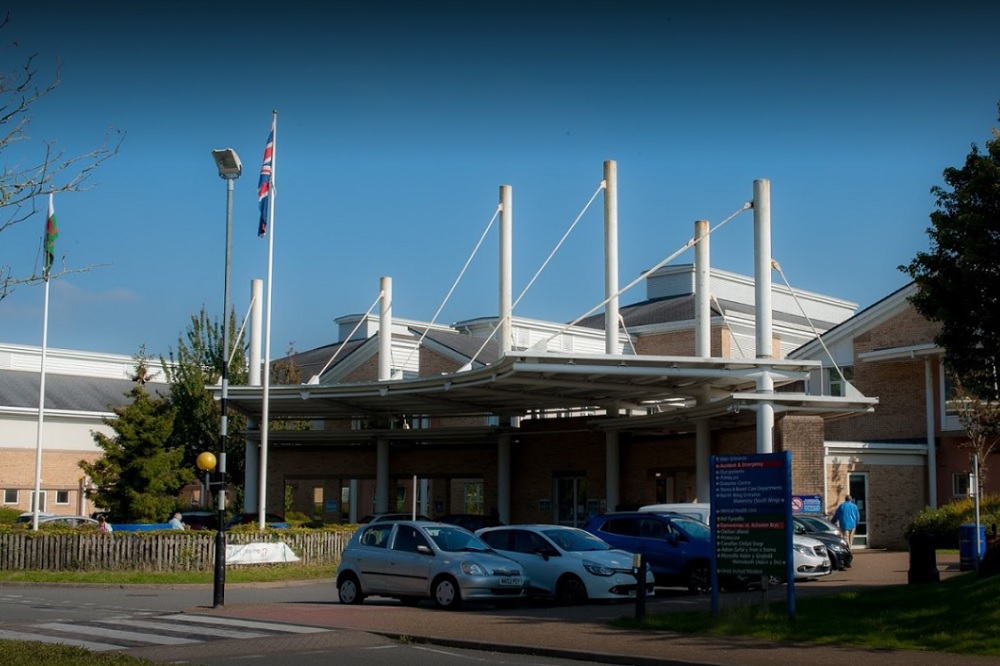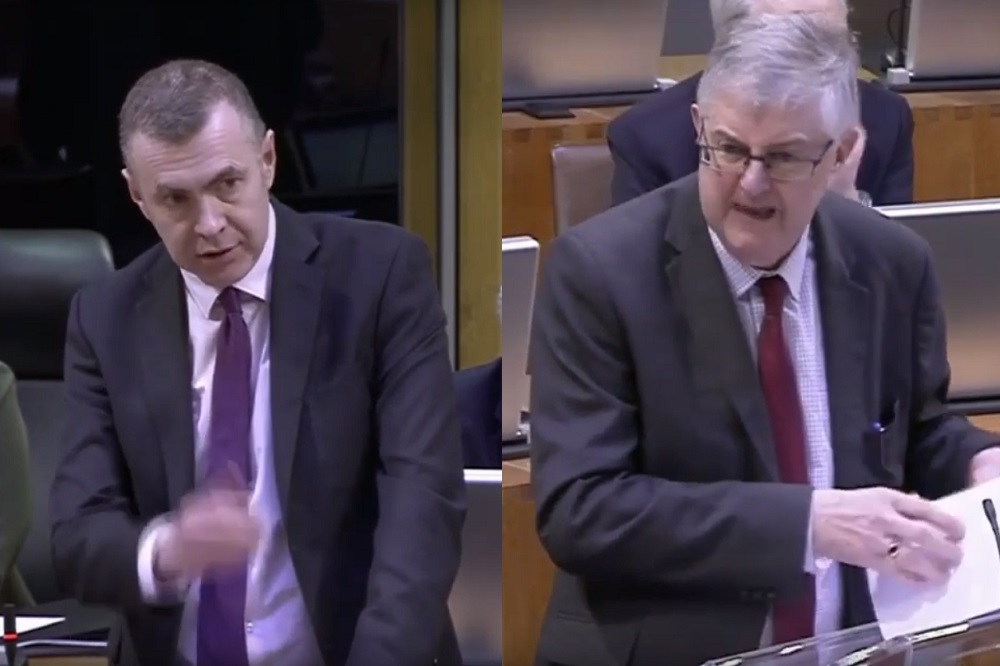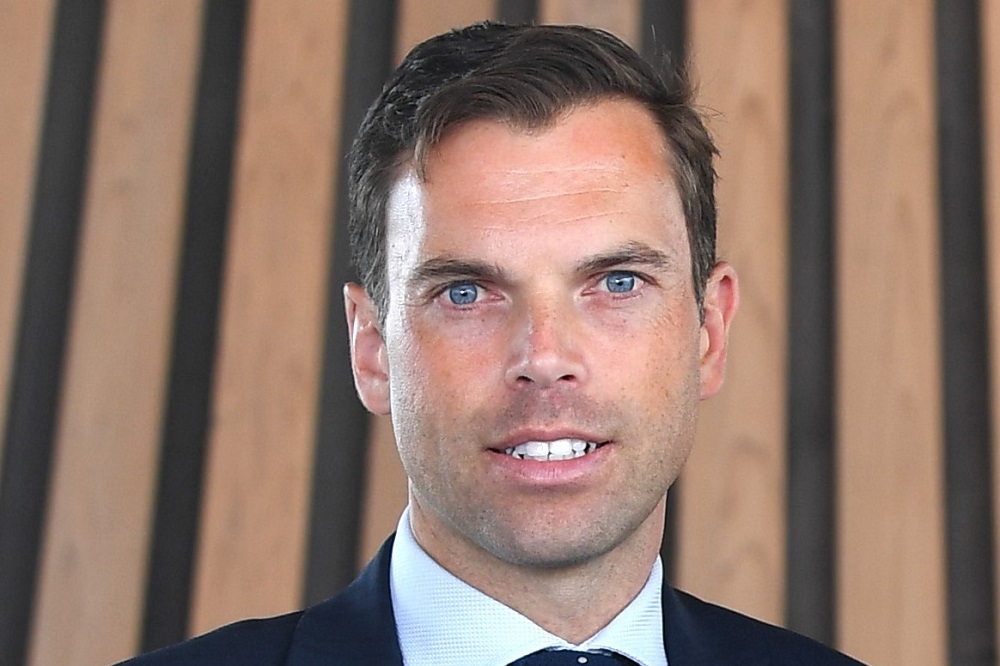Senedd roundup: Leading environmental lawyers join battle to block mud dump

Owen Donovan, Senedd Home
Campaigners attempting to stop mud from the construction of Hinkley Point Nuclear Power Station, Somerset, being dumped into Welsh waters, have announced they are working with leading environmental lawyers Leigh Day to block the proposals.
In February EDF Energy applied to National Resources Wales for a licence to dump 800,0000 tonnes of mud dredged as part of building work for the new plant that is being built on the site of the disused Hinkley Point A facility.
Two years ago, EDF were given permission to dump 300,000 tonnes of mud from the site off the Cardiff coast, despite protests and following a Senedd debate.
A petition against the latest proposals received over 10,000 signatures and has triggered a debate in the Senedd tomorrow.
Earlier this month EDF Energy confirmed it will carry out an Environmental Impact Assessment as part of its licence application. This agreement reverses NRW and Welsh Government’s previous position that an EIA was not needed for the dumping they permitted in 2018 just 2.1 miles off the South Wales coast and 2.5 miles from Cardiff.
Leigh Day has now written to Natural Resources Wales (NRW) requesting full disclosure of documents on the Environmental Impact Assessment (EIA)-screening application from EDF and the agreement with NRW that “environmental impact assessment is required”.
EDF are also facing a public inquiry over a controversial fish management system that is being installed at the site of the new facility.
The Environment Agency granted a licence to EDF in 2013 that permitted sea water to be used for the nuclear power station’s cooling system but required the deployment of a fish deterrent system on the site to protect marine life in the estuary.
Initially the operator proposed the use of an acoustic deterrent system to reduce the number of fish being killed by the cooling system but in 2017 abandoned the plans without suggesting any alternative.
Currently the plant’s proposed Fish Recovery and Return System will consist of a 5mm mesh barrier set up in the water intake tunnel to stop large fish from being sucked in while another channel will divert fish, dead or alive, back out to sea.
Last year the Sunday Times reported that marine and conservation groups estimated that this system will kill 250,000 fish a day and called for it to be altered or scrapped. EDF said the FRR will kills an estimated 650,00 fish a year.
EDF were informed by the EA in August that their seawater abstraction system “is unlikely to meet the requirements of the Habitats Regulations” and as a consequence submitted an appeal in writing to the Planning Inspectorate and requested that the case should be heard at a Public Inquiry.
Max Wallis from Friends of the Earth Barry & Vale, part of the Geiger Bay coalition, commented: “Geiger Bay welcomes a Public Inquiry. We will ask the Inquiry to consider the option of not excavating nuclear contaminated mud – 600 000 cu metres, nearly a million tonnes – because of the nuclear contaminants that would be mobilised and spread largely on the Welsh side of the Severn Estuary. The Inquiry has the option to cancel the license and require EDF to use land-based cooling systems instead of seawater.”

New figures reveal hospital deaths in Cwm Taf Morgannwg account for over 50% of the weekly Covid deaths in Wales
Hospital deaths from Covid-19 in Rhondda Cynon Taf are the second highest in England and Wales according to new figures from the Office for National Statistics.
Outbreaks have been declared at three Cwm Taf Morgannwg health board hospitals in recent weeks, where there have been 200 cases and 47 deaths reported by the health board: 38 at the Royal Glamorgan Hospital in Llantrisant, five at Prince Charles Hospital in Merthyr Tydfil, and four at the Princess of Wales Hospital in Bridgend.
The ONS figures for the week ending 9 October have recorded 37 deaths involving Covid-19 across Wales, up from 25 the week before, with 23 of those registered in Cwm Taf Morgannwg.
In total 17 of those are hospital deaths in Rhondda Cynon Taf and five in are in Merthyr Tydfil.
The number of hospital deaths in RCT was second only to Liverpool (21 deaths) across the whole of England and Wales.
Since the start of the Pandemic in late February there have been a total of 344 deaths in RCT (143.2 deaths per 100,000 people) moving it into the 10 worst-hit areas across England and Wales.
The number of excess deaths in Wales is 23 more than the five-year average in Wales for the week covered by the statistics.
The ONS figures tend to be higher that the daily total reported by Public Health Wales as they include suspected and confirmed cases of Covid if mentioned on the death certificate and also record deaths which occur at home, care homes, hospices, as well as hospital.
Ten more people have died due to coronavirus and 1,148 people have tested positive in the last 24 hours, according to the latest update from Public Health Wales.
Since the start of the months there have been a total of 103 deaths due to the virus in Wales.
Cardiff accounts for 225 of the new cases, taking the weekly total to 1,041 the highest in Wales and has the worst infection rate at 283.7 per 100,000 of the population and the highest positive test rate at 18.3% per 100,000 tests.
There were also 150 new positive tests in Rhondda Cynon Taf and 90 in Swansea.
RCT now has an infection rate of 201 per 100,000 people and a positive test rate of 16.7%. There were 23 new cases in Merthyr Tydfil, where the infection rate is the second highest in Wales at 217.2 per 100,000

Did money determine how long the “firebreak” lockdown would last?
First Minister’s Questions
As you might expect, yesterday’s announcement of a two-week “firebreak” national lockdown was the main topic of discussion. There’s a formal debate set for later this afternoon – more on that later.
Adam Price MS (Plaid, Carms. E. & Dinefwr) – who supports the “firebreak” – cited scientific advice given to the Welsh Government which states that a two-week lockdown could eventually save 1,000 lives by the end of 2020, while a three-week lockdown would save an extra 300 lives on top of that.
It was “incomprehensible and reprehensible” that the UK Chancellor has refused to bring the job support scheme forward: “It’s difficult to believe that the purse strings would be shut quite so tight if there were a circuit breaker in Surrey.” Was funding a factor in deciding how long the mini lockdown would last?
The First Minister’s answer suggested “no”; decisions are made on public health grounds. However, it was difficult to see why the Chancellor turned that down given that the Welsh Government were willing to cover any additional costs involved:
“Llywydd, it cannot be that it was financial reasons that prevented (UK Chancellor, Rishi Sunak) from agreeing to that because we agreed….to pay the additional £11 million it would’ve cost the UK Treasury from our own resources if that was the sticking point. So, it can’t have been turned down on cost grounds, and it is difficult to see why the Chancellor didn’t feel that he was able to play his part.”
– First Minister, Mark Drakeford (Lab, Cardiff West)
People will be “frustrated that their freedoms will be curtailed again”
Leader of the Opposition, Paul Davies MS (Con, Preseli Pembs.) took a different line. The firebreak lockdown was wrong. People across Wales would be frustrated and angry that their freedoms were being curtailed again. He also repeated calls for community-level data to be made available*.
“Whilst I’m open-minded about further restrictions….the data that is available to us simply doesn’t justify a national lockdown, and I think the Welsh Government’s national lockdown will disproportionately harm communities and businesses where cases are already low, such as the whole of mid and west Wales. First Minister, according to Public Health Wales’s latest data, in 20 of the 22 local authority areas, cases of Covid-19 per 100,000 have gone down from week 41 to week 42. How can you justify a national lockdown when figures in all but two areas are actually coming down?”
– Leader of the Opposition, Paul Davies MS
The First Minister said while the public’s efforts to lower the number of cases were succeeding, it wasn’t happening fast enough. According to the Welsh Government’s scientific advice, cases and hospital admissions would continue to rise and there could potentially be an additional 6,000 deaths over the winter.
A “firebreak” now – if successful – would create the necessary conditions for businesses to continue trading in the run-up to Christmas, instead of undermining them through loss of staff or customers to illness or loss of consumer confidence because of an inability to control Covid-19 cases.
* Coincidentally, Public Health Wales has started publishing a map showing more localised data (though not down to council ward level) at their statistics page. Click on the “Cases by MSOA” tab.

Extra funding announced for struggling Welsh businesses
Economy Minister Ken Skates has announced the Welsh Government is doubling the third phase of its Economic Resilience Fund, making nearly £300 million available to support businesses that affected by Covid-19.
In September Mr Ken Skates announced £140 million would be made available under the third phase of the Welsh Government’s Economic Resilience Fund.
However as a result of the firebreak lockdown, which will begin on Friday and continue until Monday 9 November and will require a range of businesses to temporarily close their doors or reduce their operations, the latest round of the fund will is being boosted to offer ensure further help for businesses across Wales.
The Economic Resilience Fund, which complements support schemes available from the UK Government, is part of the Welsh Government’s £1.7 billion support package for businesses to help deal with the economic impacts of coronavirus.
Announcing the increased funding, Ken Skates said: “As a Welsh Government we are having to make important decisions to help slow the spread of coronavirus and protect both the stability of our NHS and the health of our people. However, we absolutely recognise that these decisions do have a knock-on effect on our economy and our businesses during what has already been an incredibly difficult year for them.”
“This enhanced package of support, which will see us doubling the third phase of our Economic Resilience Fund and quickly getting money out to our businesses to support them through this firebreak and beyond, is designed to provide just that.”
The package of support will see:
Payments of £1,000 for businesses that are eligible for Small Business Rates relief and occupy a property with a rateable value of £12,000 or less.
- Payments of up to £5,000 for retail, hospitality and leisure businesses that are required to close and which occupy a property with a rateable value of between £12,001 and £50,000.
- A discretionary £2,000 top-up grant for businesses closed or materially affected by the firebreak lockdown.
- A further discretionary £1,000 grant for businesses that were materially affected by local lockdown measures for 21 days or more prior to the start of the firebreak lockdown period.
Welsh Government is also providing a further £20 million towards business grants meaning £100 million overall will be available for this purpose.
Previously, companies were required to provide a percentage of the funding to access these grants, but Welsh Government has now confirmed it will provide 100% funding for businesses forced to close during the firebreak.
The funds will open next week and full details are available on Business Wales.

Banknotes from the Bank of England (CC0 Public Domain)
Welsh public services lose £8 million through fraud and overpayments over two years
The biennial National Fraud Initiative revealed that public bodies in Wales were defrauded of £8 million during 2018-2020 through a mix of fraudulent claims and overpayments.
“The Covid-19 pandemic has brought significant challenges for public sector organisations who continue to deliver services for individuals, communities and businesses in an extremely difficult time. So identifying £8 million in this latest NFI exercise is an important contribution to public service funding across Wales. It is more important than ever that organisations have sound governance and controls in place to help protect vital services from the risk of fraud at this time of crisis.”
– Auditor General, Adrian Crompton
The figure was a £2.7 million increase on the 2016-18 findings. Audit Wales also suggests the Covid-19 pandemic has increased the public sector’s susceptibility to fraud due to quick turnaround times for payments.
£244.7 million of fraudulent payments were uncovered across the UK as a whole, with the Welsh contribution of 3.3% of the total figure being lower than Wales’ population share.

School holiday access to free school meals extended
The Welsh Government has extended the availability of free school meals during school holidays up to and including the Easter 2021 break at the cost of £11million.
£700,000 has also been made available to ensure equivalent services at further education colleges.
Education Minister, Kirsty Williams (Lib Dem, Brecon & Radnor), said: “We have worked tirelessly this year to respond to the coronavirus pandemic and the countless challenges it has presented but we have not, and will not, forget those for who school is about far more than education.”
The announcement was welcomed by Manchester United footballer, Marcus Rashford, who has been a vocal campaigner against child poverty and has called for England to follow suit. He said: “No child in 2020 should be sat in a classroom worried about how they are going to access food during the holidays, and the impact that will have on their parents when matched with unemployment, ill-health and, in some cases, personal loss.”
Support our Nation today
For the price of a cup of coffee a month you can help us create an independent, not-for-profit, national news service for the people of Wales, by the people of Wales.






